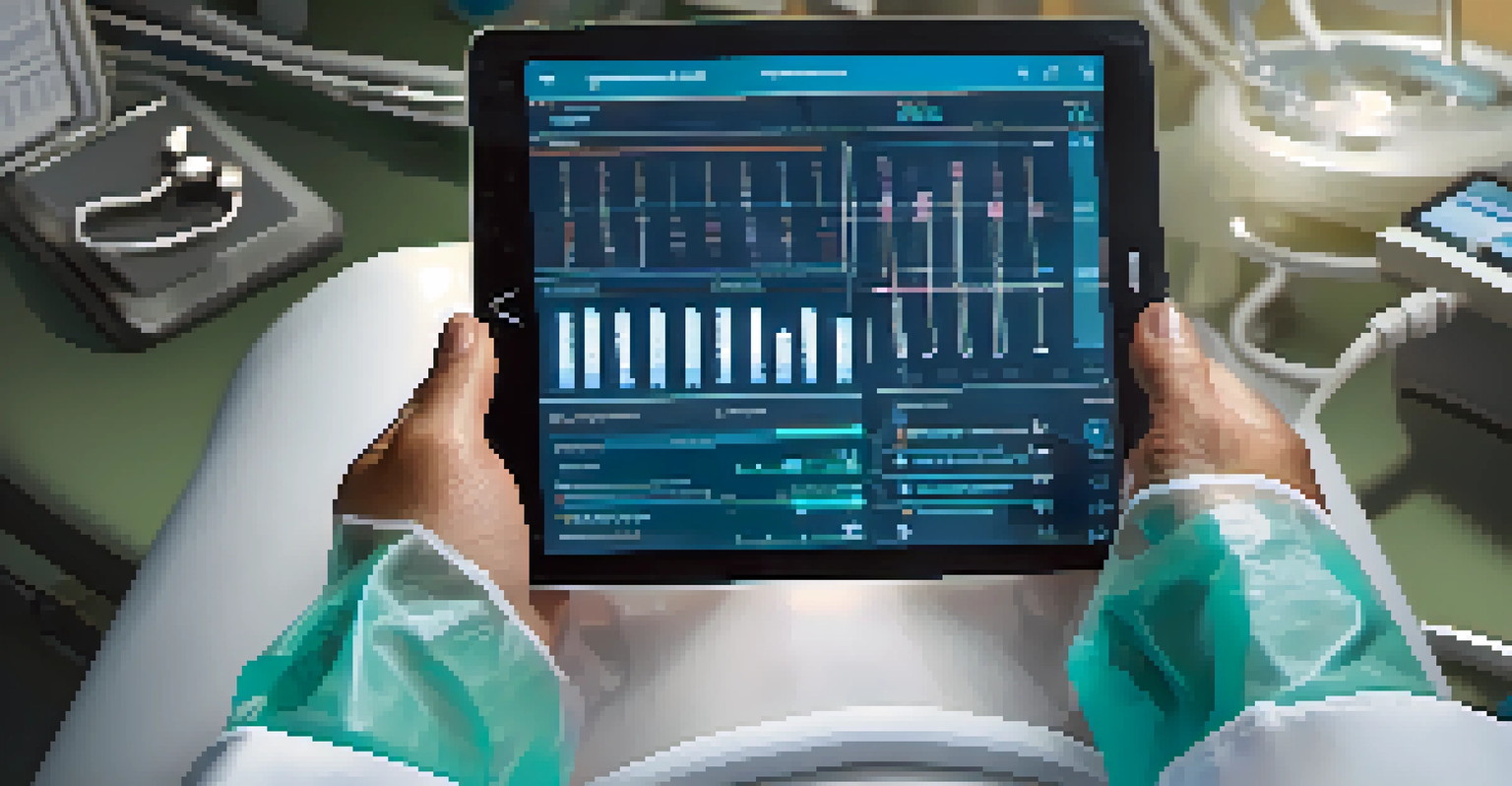The Economic Impact of the Healthcare Industry in the City

Introduction to the Healthcare Industry's Influence
The healthcare industry plays a pivotal role in shaping a city's economy. It not only provides essential services but also contributes significantly to job creation and income generation. As cities grow and evolve, the healthcare sector becomes increasingly intertwined with local economic health.
Health is a state of complete physical, mental and social well-being and not merely the absence of disease or infirmity.
Understanding the economic impact of healthcare involves looking at various factors, including employment rates, investment in infrastructure, and the overall quality of life for residents. A robust healthcare system can attract new businesses and enhance the city's appeal to potential residents.
In this article, we will explore how the healthcare industry influences the economy of the city, examining key areas such as job creation, local spending, and the ripple effects on other sectors.
Job Creation and Employment Opportunities
One of the most immediate impacts of the healthcare industry is job creation. Hospitals, clinics, and specialized care facilities employ thousands of people, from doctors and nurses to administrative staff and support personnel. This influx of jobs not only helps reduce unemployment rates but also fosters economic stability within the community.

Moreover, healthcare jobs often come with competitive salaries and benefits, which can lead to increased disposable income for families. This, in turn, stimulates local businesses as residents have more to spend on goods and services, creating a positive feedback loop.
Healthcare Drives Job Creation
The healthcare industry significantly contributes to job creation, providing thousands of employment opportunities and enhancing local economic stability.
Additionally, the healthcare sector often encourages the growth of related industries, such as medical billing and pharmaceutical sales, further expanding employment opportunities in the region.
Local Spending Boosts the Economy
Healthcare facilities do not operate in isolation; they rely on local suppliers and services for their needs. This creates a significant economic ripple effect, as money spent on medical supplies, food services, and maintenance directly benefits local businesses. When healthcare institutions thrive, so too do the businesses that support them.
The greatest wealth is health.
Furthermore, hospitals and clinics often contribute to the local economy through taxes and fees, which can be reinvested in public services and infrastructure. This is essential for maintaining a healthy urban environment, as it allows for better schools, roads, and recreational facilities.
As patients and their families seek care, they also spend money on nearby accommodations, restaurants, and shops, contributing to the overall economic vitality of the area.
Investment in Infrastructure and Innovation
The healthcare industry's impact extends beyond immediate job creation and spending; it also drives significant investment in infrastructure. New hospitals and clinics require substantial financial resources, which can lead to improved facilities and advanced medical technologies. This investment not only enhances patient care but also attracts additional specialists to the area.
Moreover, as healthcare facilities innovate and adopt new technologies, they create a demand for skilled workers in fields such as IT and engineering. This encourages educational institutions to tailor their programs to meet these needs, further boosting the local economy by producing a highly skilled workforce.
Local Spending Fuels Economic Growth
Healthcare facilities stimulate the local economy by relying on nearby suppliers and services, creating a ripple effect that benefits various businesses.
In essence, the cycle of investment and innovation within the healthcare sector leads to an evolving urban landscape that benefits everyone in the community.
The Role of Healthcare in Economic Resilience
In times of economic downturn, the healthcare industry often proves to be a stabilizing force. People will always need medical care, which means that jobs in this sector tend to be more secure compared to others. This resilience helps maintain employment levels and supports local economies during challenging times.
Additionally, a strong healthcare system can attract businesses looking for a reliable workforce and a healthy population. Companies are more likely to invest in a city where they know employees have access to quality healthcare, which can lead to further economic growth.
Ultimately, the healthcare sector serves as a cornerstone for a city’s economic resilience, providing stability and fostering confidence among residents and investors alike.
Community Health and Economic Productivity
A healthy population is a productive population, and the healthcare industry plays a critical role in maintaining community health. Access to healthcare ensures that individuals can receive timely treatments, preventing minor issues from escalating into more significant health crises. This not only improves quality of life but also enhances workforce productivity.
When people are healthy, they are more likely to participate actively in the economy, contributing their skills and talents without the burden of chronic illness or untreated conditions. Employers benefit from a more engaged workforce, leading to increased output and economic growth.
Healthcare Ensures Community Productivity
Access to quality healthcare improves community health, leading to a more productive workforce and enhanced economic participation.
Furthermore, preventive care and wellness initiatives can reduce healthcare costs, allowing individuals and families to allocate more resources toward education and leisure, which also boosts the local economy.
Challenges Facing the Healthcare Sector
Despite its positive impacts, the healthcare industry faces several challenges that can affect its economic contributions. Rising costs of healthcare services, insurance premiums, and pharmaceuticals can strain the budgets of families and local governments alike. These financial pressures may lead to reduced spending in other sectors.
Additionally, there are issues related to access and equity in healthcare. Disparities in healthcare access can create economic divides within a city, where some populations receive high-quality care while others struggle with inadequate resources. Addressing these challenges is essential for ensuring that the economic benefits of healthcare are felt by all.

By understanding and tackling these obstacles, cities can work toward a more equitable healthcare system that supports overall economic growth and community well-being.
Conclusion: The Future of Healthcare's Economic Role
As cities continue to grow and evolve, the healthcare industry's economic impact will remain a crucial factor in shaping their futures. With ongoing advancements in technology and an increasing focus on preventive care, the healthcare sector is poised to play an even more significant role in economic development.
To maximize these benefits, city leaders, healthcare providers, and community members must collaborate to address existing challenges and ensure equitable access to quality care. This combined effort will not only strengthen the healthcare system but also enhance the overall economic landscape of the city.
In summary, the healthcare industry is a driving force behind economic growth, job creation, and community well-being, making its continued prosperity vital for cities everywhere.